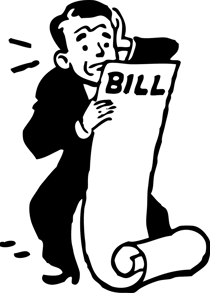Debt Collectors calling you all the time?
What you can do if you're being harassed by debt collectors.


Dealing with debt can be stressful, and aggressive debt collection practices can make the situation even worse. Fortunately, the Fair Debt Collection Practices Act (FDCPA) exists to protect consumers from harassment, abuse, and unfair treatment by debt collectors.
What is the FDCPA?
The Fair Debt Collection Practices Act (FDCPA) is a federal law enacted to regulate the behavior of debt collectors and protect consumers from abusive, deceptive, and unfair debt collection practices. The FDCPA applies to third-party debt collectors, such as collection agencies and attorneys who collect debts on behalf of others. It does not apply to creditors collecting their own debts, though many states have similar laws that cover creditors as well.
Key Protections Under the FDCPA
The FDCPA provides several important protections for consumers. Here are some of the key rules debt collectors must follow:
1. Prohibition of Harassment or Abuse
Debt collectors cannot:
Use threats of violence or harm.
Use obscene or profane language.
Repeatedly call you with the intent to annoy, abuse, or harass.
2. Restrictions on Communication
Debt collectors are limited in how and when they can contact you:
They cannot call you before 8 a.m. or after 9 p.m. unless you agree.
They cannot contact you at work if you tell them your employer disapproves.
If you have an attorney representing you, they must contact your attorney instead of you.
3. Truthful and Transparent Communication
Debt collectors must provide accurate information and cannot:
Misrepresent the amount you owe.
Falsely claim to be attorneys or government representatives.
Threaten legal action they cannot or do not intend to take.
4. Validation of Debts
If you request it, debt collectors must provide written verification of the debt, including:
The amount owed.
The name of the original creditor.
Information about your rights to dispute the debt.
5. Prohibition of Unfair Practices
Debt collectors cannot:
Add unauthorized fees or interest to your debt.
Deposit a postdated check early.
Threaten to take your property or wages unless they have the legal right to do so.
How the FDCPA Can Help You
If a debt collector violates the FDCPA, you have the right to take action. An experienced attorney can assist with your potential claim, and possibly:
Stop Harassment
Dispute the Debt
Seek Damages
Damages include up to $1,000.00 in statutory damages per debt collector for violations. You may be entitled to more of you suffer actual damages (e.g. emotional distress) if you can clearly document how the harassment has impacted you.
The best part is that attorney’s fees and court costs can be awarded—so you are not out of pocket for bringing a valid claim against debt collector(s) violating the FDCPA.
If you believe your rights have been violated, consider consulting an attorney. They can help you file a lawsuit or negotiate with the debt collector on your behalf.
Disclaimer: This blog post is for informational purposes only and does not constitute legal advice. For specific legal guidance, consult a licensed attorney.
